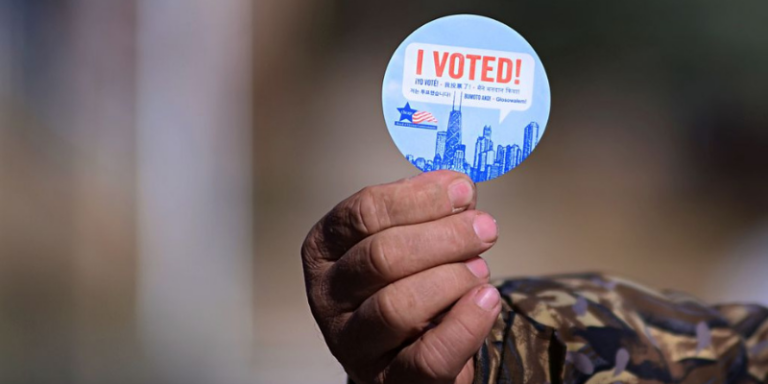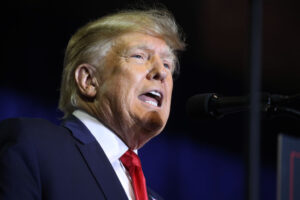Polls – How Reliable Are They?
Polling has become an important part of elections – but why?
By: Jose Backer | September 16, 2020 | 385 Words

I voted badge sticker (Photo by Jacek BoczarskiAnadolu Agency via Getty Images)
For a long time, people have believed that the major polls indicated who was going to win in an election. That’s starting to change, though, as people are doubting polls because of their unreliability, bias, and inability to predict political outcomes. Look at the polls of 2016. Nearly all of them showed Hillary Clinton winning the presidency in a landslide. We all know how that turned out.
How Polling Began
The first known opinion poll ever taken was during the 1824 presidential election in North Carolina. The poll results showed that Andrew Jackson would win the popular vote over John Quincy Adams, which was proven correct and drew interest to the idea of polling. Polls continued to occur, though they were restricted to smaller elections until 1916. In the 1916 presidential election, The Literary Digest magazine started the first nationwide poll by mailing out postcards and counting the responses. They predicted the next five presidential races accurately.
Statistics-Based Polling Prevails
The problem with The Literary Digest’s poll was that it was based on responses from their own readers. Most of them were Republicans. George Gallup, on the other hand, used a statistics-based survey in the 1936 election. While The Literary Digest predicted the Republican candidate would win, it was Gallup’s method that predicted Roosevelt would win – and he did, in a landslide.

President Donald Trump (Photo by Spencer Platt/Getty Images)
Modern Polling and its Troubles
Typically, polls nowadays are run by various outlets. Newspapers, magazines, polling organizations, data analytic firms, and universities make up the majority of pollsters in the United States. Few polls believed Trump had a serious chance at a win in the 2016 election.
So how could the polls have been so wrong? Many say it’s because of “shy voters.” These people supported Trump but didn’t tell everyone about it before they voted. Whatever the cause, it was this massive failure that raised questions about the reliability of polls when it comes to controversial candidates, political polarization, and overwhelming media bias.
Depending on who you talk to, polls are either useless or very important looks into the future. Since 2016, many polling outlets issued apologies for their inaccurate figures on Election Day in 2016. Outlets have also begun to publicize the corrections made to their polling methods.
















